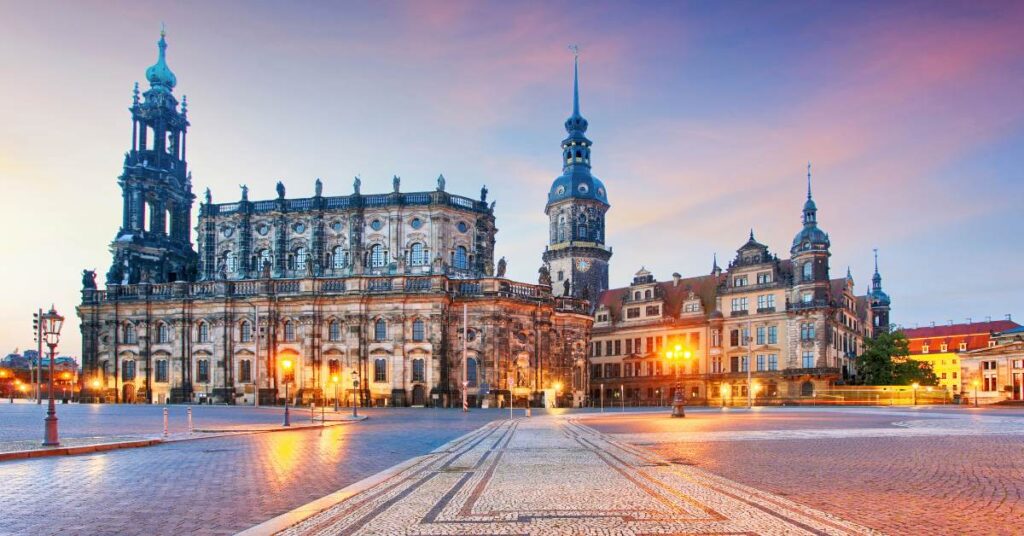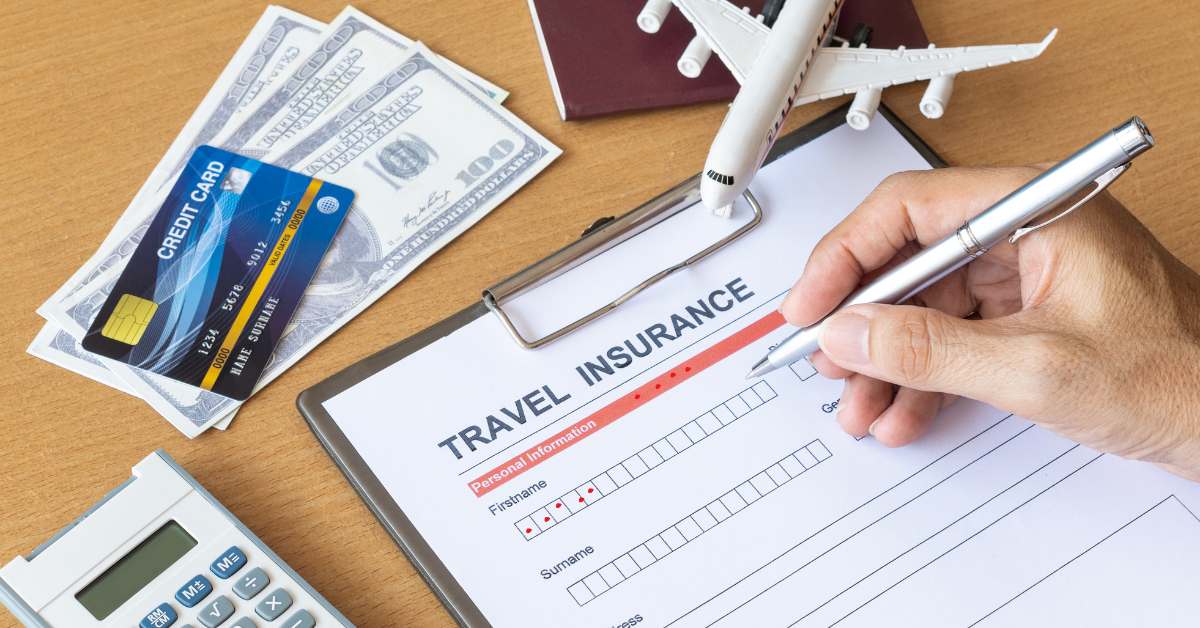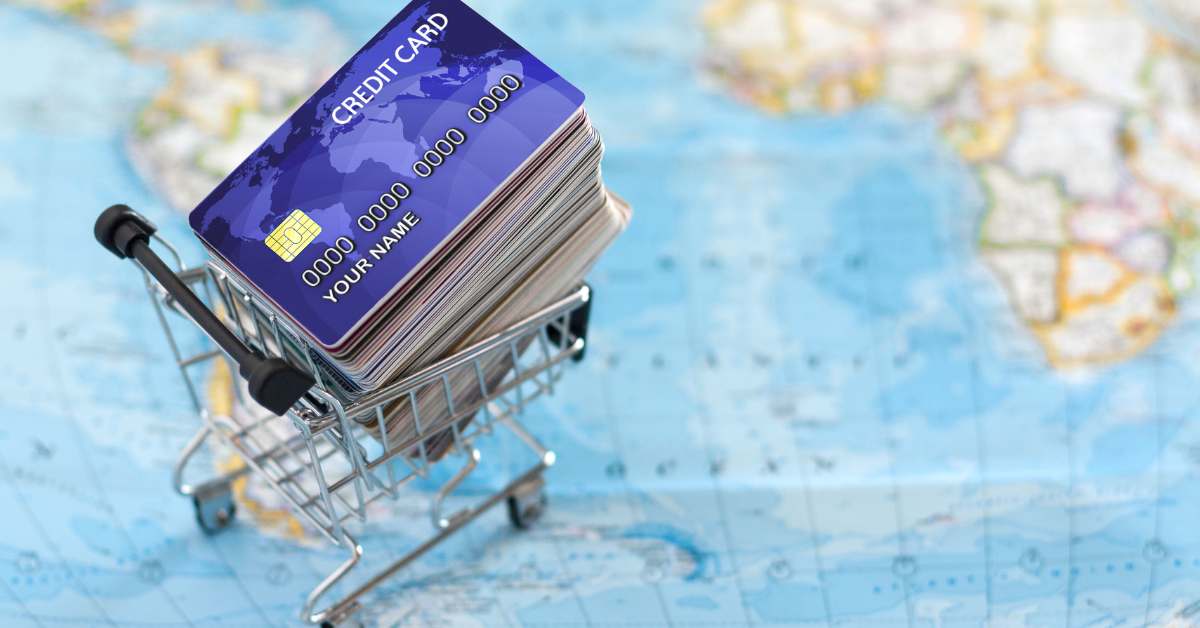Welcome to Trip Trek Tales, a travel blog that will help you to find the best travel guides and tips for all your journeys. In this article we will be talking about a dreamy destination for almost every Indian, we are talking about Europe. We will share some Europe travel tips that will certainly help you on your trip.
Europe is a blend of historical sites, diverse cultures, amazing landscapes, and ofcourse culinary delights. When you visit Europe, you surely come back with unforgettable memories and we are here to make those memories more special for you.
With careful planning and preparation you can make your Europe trip a truly amazing one, So, be with us till the end and read all the Europe travel tips as they can be really helpful in Europe.
Follow These 16 Europe Travel Tips While Travelling From India
1. Visa Requirements
While travelling to Europe from India, you are certainly required to have a Schengen Visa for almost all the countries of Europe. Schengen Visa allows you to travel across 26 European nations, which includes destinations like France, Germany, Italy, Austria, Switzerland and Spain. The process to acquire a Schengen Visa is a bit complex and costly, therefore, keep all your documents ready before applying. Here are the steps that you have to follow.
- Passport Validity: Your passport should be valid for at least six months beyond your intended stay in the Schengen area. Also, make sure it has at least two blank pages for visa stamps.
- Necessary Documents: Here are all the documents that you need to have Schengen Visa:
- A completed visa application form.
- Two recent passport-sized photographs.
- A detailed travel itinerary, including flight and hotel booking confirmations.
- A cover letter stating the purpose and itinerary of your visit.
- Travel insurance with a minimum coverage of €30,000.
- Proof of sufficient funds, such as bank statements or sponsorship letters.
- An employment letter or No Objection Certificate (NOC) from your employer or educational institution.
- Where to Apply: Apply at the consulate or embassy of the country where you’ll spend the most time. If you are spending almost equal days in multiple countries, then it is advisable to apply to the consulate of the country you will first enter.
Tips for a Successful Application
- Start Early: The whole process of visa is a time taking one, so apply at least three to four months before your travel date.
- Accurate Information: You have to be very careful on this step. Ensure all information provided is accurate and consistent across documents. As previously said, you will lose a hefty visa amount if there will be any mismatch in the information.
- Interview Preparation: Be prepared to explain your travel plans and provide additional documents if requested. Although this interview is not tough, they just want to ensure you are travelling with a good motive and prepared to go to Europe.
2. Best Time to Visit Europe
Europe is a vast continent and you may find diverse climatic conditions. The whole year is the best time to visit Europe, rest depends on your wishes.
- Summer (June to August): The peak tourist season with warm weather. This time is ideal for outdoor activities and festivals. However, during these months you may find Europe expensive and crowded.
- Autumn (September to November): A great time to experience Europe with fewer tourists, cooler weather, and beautiful fall foliage. During this time period, prices are lower, and the atmosphere is more relaxed. Therefore, you will find calmness wherever you go.
- Winter (December to February): If you love winter sports and want to enjoy the Christmas season, then visit Europe in winter. Cities are decorated with lights and bells, and you may find snowfall as well. This duration is again a bit hefty on pockets.
- Spring (March to May): A delightful time with mild weather, blooming flowers, and fewer tourists. It’s ideal for sightseeing and enjoying outdoor cafes.
Off-Season Benefits
Travelling during the off-season has its advantages that one cannot ignore:
- Lower Costs: Flights and accommodations are generally cheaper.
- Fewer Crowds: Popular tourist spots are less crowded, allowing for a more intimate experience.
- Unique Events: Experience local festivals and events that may not be as commercialised.
3. Currency Management
Proper currency management is crucial for a hassle-free experience in Europe. Currency value is higher as compared to INR therefore, you have to make sure you don’t spend uselessly. Here are some tips for currency management while travelling to Europe.
- Exchange Rates: Avoid exchanging currency at airports, they charge a lot of money on currency exchange. Opt for local exchange offices or banks in the city. It’s also advisable to exchange some Euros in India before departure. Always do currency exchange from genuine providers.
- Payment Methods: Credit and debit cards (Visa, MasterCard, American Express) are widely accepted in Europe. However, you can also carry a forex card or international travel card for better security and exchange rates. Forex cards are preloaded with Euros or other currencies and used like a debit card. They are hassle free and quick method to pay with less exchange rates.
Cash vs. Card
- Cash: Carrying cash is a good deal. Have some cash for small expenses like local transportation, tips, or small shops. While Euros are widely accepted, some countries have their own currency (e.g., Croatia, Hungary, Switzerland). Research and prepare accordingly.
- Cards: Use cards for larger transactions and in places where they are widely accepted, such as hotels, restaurants, and shopping centres.
4. Train Travel
Travelling by train is a good way to save money in Europe. Also Europe’s extensive train network makes travelling between cities and countries convenient and scenic. Here are some benefits of travelling by train in Europe.
- Efficiency: Trains are often faster and more convenient than flights, especially for shorter distances. They take you directly to city centers, saving time on transfers.
- Scenic Views: Train journeys offer breathtaking views of the countryside, mountains, and coastline. Ofcourse, you do not want to miss those beautiful landscapes of Europes. So, train is actually a good way to explore and experience the beauty of this continent.
- Comfort: Trains offer spacious seating, the ability to move around, and amenities like dining cars. Also, European trains are clean and fast, thus they will save your time and money.
Booking and Planning
- Advance Booking: Early booking always helps in all situations. Book your train tickets in advance to get the best deals. Websites like Eurail and Rail Europe provide options for multiple routes and passes.
- Passes: Consider a Eurail Pass if you plan to travel extensively within Europe. It offers flexibility and can be cost-effective.
5. Local Language Basics
While English is commonly spoken in major tourist areas, knowing a few phrases in the local language can enhance your experience. At some cafes, and local places you might not find people who understand English well.
- Common Phrases: Learn words like “hello,” “thank you,” “please,” and “excuse me.” It shows respect and politeness.
- Communication: Basic language skills can help in everyday situations like ordering food, asking for directions, and shopping.
Language Apps and Resources
- Apps: Use language learning apps like Duolingo, Babbel, or Google Translate for quick translations and pronunciation.
- Phrasebooks: Carry a small phrasebook for reference.
6. Mobile Connectivity
Having a reliable mobile connection is essential for navigation, communication, and accessing travel information:
- International Roaming: Activate an international roaming plan with your Indian service provider before departure. This is convenient for short trips or if you don’t want to switch SIM cards. Though International Roaming Plans are a bit costly, they will really save you while travelling in Europe.
- Local SIM Cards: For longer stays or better data rates, consider buying a local SIM card. These are available at airports, mobile shops, and convenience stores.
Internet Access
- Wi-Fi: Europe has good wifi services in almost all places. Many hotels, cafes, and public places offer free Wi-Fi. Be cautious when using public networks for sensitive transactions.
- Portable Hotspots: Renting a portable Wi-Fi device can provide internet access throughout your trip, especially if you’re travelling with a group.
7. Online Ticket Booking
Europe is home to numerous world-famous attractions, often attracting large crowds. Therefore, it is better to book online tickets of famous monuments and places to save your time.
- Skip the Line: Booking tickets online for popular sites like the Eiffel Tower, Vatican Museums, or the Louvre can save you hours of waiting in line.
- Guaranteed Entry: For attractions with limited daily entries, online booking ensures you don’t miss out.
Tips for Online Bookings
- Official Websites: Always book through official websites and get accurate information. It is better to pay the genuine price than wasting your money on a fake website.
- Print or Digital: Keep a printed copy or a digital version of your tickets for easy access. At some places, checking counters may ask for the physical copies as well.
8. Packing Tips
Packing wisely can enhance your travel experience. Do not go with useless clothes, plan your packing as per the places you will visit in Europe.
- Clothing: Pack according to the season and activities planned. Europe’s weather can be unpredictable, so layering is key. Bring comfortable walking shoes, as many cities have cobblestone streets.
- Accessories: It is always a good thing to carry small backpacks for day trips in Europe. Also, carry an umbrella wherever you go outside. Along with these things, you can keep a hat or sunglasses for sun protection.
- Adapters: Europe has different plug types and voltages. Bring a universal adapter and check if your devices support 220-240V. Otherwise you have to purchase it from Europe and that will be a pain in your pocket.
Packing Light
- Carry-On: Try to travel with a carry-on bag to avoid baggage fees and waiting times. It’s easier to navigate public transport with light luggage.
- Versatile Items: Choose versatile clothing items that can be mixed and matched.
9. Shopping Tips
Europe offers diverse shopping experiences, from luxury boutiques to charming street markets and perfume shops. Shopping is expensive in Europe but we advise you to buy at least something for the memory
- Local Markets: Visit local markets for unique souvenirs and handcrafted items. These markets often offer better prices than touristy shops. You can also do some bargaining as well in local markets.
- Etiquette: Greet shopkeepers with a polite “hello” and ask if you can bargain. In some cultures, haggling is expected, while in others, prices are fixed. But, be polite always as people in Europe are polite and calm.
VAT Refunds
- Eligibility: Non-EU residents can claim a VAT refund on certain purchases. Keep your receipts and fill out the necessary forms at the store.
- Process: At the airport, present your purchases, receipts, and passport at the VAT refund counter.
10. Food and Dining
European cuisine is rich and varied, offering something for every palate, be ready for European food.
- Local Specialties: Try local dishes in each country. For example, enjoy pasta and gelato in Italy, crepes and cheese in France, and tapas in Spain.
- Dining Options: Street food and local eateries offer authentic experiences at lower prices than upscale restaurants.
- Indian Restaurants: In Europe, you can find many Indian restaurants that provide veg. and non veg. both foods.
Dining Etiquette
- Meals: Europeans often enjoy a leisurely dining experience. Lunch is typically the main meal of the day, with dinner being lighter.
- Service Charges: Tipping is not always expected, but rounding up the bill or leaving small change is appreciated.
11. Visiting Non-Euro Countries
Travelling to non-Euro countries can offer unique experiences and often more affordable options. However, such countries have different currencies.
- Currency Considerations: Countries like Poland, Hungary, Switzerland and the Czech Republic use their own currencies. Research the exchange rates and be prepared to use different currencies. You can either carry some currency from India or opt for exchanging in Europe itself.
- Cultural Richness: These countries offer rich histories, distinct cultures, and stunning landscapes. Be ready to feel the difference of culture and be ready to accept their culture as well.
12. Walking Tours
Walking tours are an excellent way to explore European cities. European streets are photogenic, you can walk along the streets and have amazing clicks.
- Guided Tours: Many cities offer free or paid guided tours that provide insights into the city’s history, architecture, and culture. Some tours are themed, focusing on specific topics like food, art, or history.
- Self-Guided Tours: Consider downloading a self-guided tour app or following a map for a more flexible experience. For self guided tours, do some advance preparations for hassle free experience.
Tips for Walking Tours
- Comfortable Footwear: Wear comfortable shoes and bring a water bottle.
- Tipping: It’s customary to tip the guide if you enjoyed the tour, especially for free tours.
13. Budget-Friendly Food Tips
Enjoying delicious food doesn’t have to break the bank, you just have to find right places for that.
- Lunch Specials: Look for “menu of the day” deals at restaurants. These often include a starter, main course, and dessert at a lower price.
- Takeaways and Street Food: Save money by choosing takeaways or street food. Many cities have vibrant street food scenes offering local delicacies.
- Ready to Eat Items: You can also carry ready to Eat foods from India. This can help a lot in saving money. Moreover, if you do not feel comfortable with European food, ready to eat can be a saviour for you.
Supermarkets and Bakeries
- Groceries: You can visit local supermarkets for snacks, drinks, and picnic supplies. This is a great way to save money and enjoy local products.
- Bakeries: European bakeries offer a variety of fresh bread, pastries, and sandwiches at affordable prices. Do not miss croissants when in Europe.
14. Accommodation Choices
Finding the right place to stay is crucial for a comfortable trip. Also, booking in advance is always a good way to save money and enjoy it without any worries.
- Location: You can stay in centrally located areas to save time and transportation costs. However, avoid staying in touristy areas as they can be noisy and expensive.
- Types of Accommodation: Options range from budget hostels and guesthouses to mid-range hotels and luxury resorts. Airbnb and vacation rentals are also popular choices for families or groups. It depends which type of stay suits you.
Booking Tips
- Advance Booking: Book accommodations well in advance, especially during peak seasons or popular events. Otherwise booking prices are too high and often you won’t find a good stay.
- Reviews and Ratings: Check reviews on platforms like TripAdvisor or Booking.com to ensure the quality of your chosen accommodation. This should be done when you are already in India.
15. Travel Insurance
Travel insurance is essential for protecting yourself against unexpected events. Although, you have to pay some additional price, it is always better to have it.
- Coverage: Choose a policy that covers medical expenses, trip cancellations, lost luggage, and personal liability. Some policies also cover adventure sports if you plan to participate in such activities.
- Documentation: Keep a copy of your insurance policy and emergency contact numbers handy.
Choosing the Right Policy
- Compare Plans: Use comparison websites to find a policy that suits your needs and budget. Do a thorough research for it. You can ask travel companies like Thomas cook for travel insurance.
- Understand Exclusions: Read the policy carefully to understand what is covered and what is excluded. Choose the one that suits you well.
16. Washroom habits
European washrooms are way too much different from those in Asia. They do not have water showers, or jets in the loo area. You have to use tissues for cleaning purposes. Though it sounds a bit funny, people often find difficulty due to this. Here are some tips that may help you.
Carry a water bottle: Always keep a use and throw bottles with you while in Europe. Fill them with tap water and use it in washrooms.
Carry wet wipes: Always carry wet wipes with you. This can help in emergency cases when you don’t have water bottles.
Conclusion
So, these are the most important Europe travel tips that can help to make your European tour a smooth one. Be ready to experience a vast culture, historic places and make memories. Follow these detailed tips and have a happy and memorable trip to Europe.
Hello I am Jyoti, I have been a constant travel writer for Trip Trek Tales. I love travelling and therefore, I wanted to contribute in this field. Travelling, writing and reading are the things that I love the most and this is the main reason why I started my career in writing.
At Trip Trek Tales, I am sharing the best information related to the field of travelling. All the information in the articles are after thorough research, personal experiences and knowledge. Hope you love my writings. Thank you. Have a happy travel!



